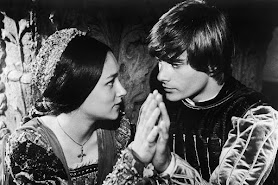Contrary to rumors, I have not been mindlessly lazing away my summer. I have been writing and editing the second volume of my pandemic trilogy, titled The Way of the Son, which as of this blog is around 75,000 words with about 30,000 to go in order to complete the story. It is a continuation of the first book, obviously, but do not allow that fact to be a spoiler.
Now that I finally have the cover artwork, I can continue the process of production and begin marketing this newest science fiction novel of mine. Here is a summary (as much as I can reveal) of Book I:
Now that I finally have the cover artwork, I can continue the process of production and begin marketing this newest science fiction novel of mine. Here is a summary (as much as I can reveal) of Book I:
I. The Book of Mom
In the beginning was the virus and the virus was with us. Or something like that. Just as you and I experienced in 2020. We faced uncertainty, fear, the unknown, and reacted to what politicians and scientists thought was the best way to deal with the emergency. What we know now in 2022 may be different than our initial thoughts and actions. But what if it continued unabated? We feel safe again, returning to some kind of normal life yet with some elements not quite the same as we knew them before the pandemic. Yet what if we were in a longer crisis?
In FLU SEASON, a stand-alone novel that has blossomed into a trilogy, we follow teenage son Sandy as he accompanies his mother in fleeing their city. With the pandemic in its sixth year, everything has collapsed into an unbearable situation. Mom decides it's time to leave the chaos of the city for what she believes will be relative safety at her parents' farm. After the struggle to get to the farm, however, they find the chaos has invaded the rural areas, as well. Violence and the stark reality of survival hit them hard. What to do? They cannot return to the city.
They will go to Mom's older sister's house in another city. But everything there is also not what they expected and not a good place to stay, so they travel on to the other sister's home. There they face a big turning point in their plans, one that shapes the rest of the trilogy. Along the way we experience as they do the ways the world has changed, what the new normal actually means with random violence, no law and order, lack of food and fuel, as well as the on-going pandemic and the necessary precautions everyone must take. We follow how they figure out how to live in this altered world. They encounter others along the way, who represent various views of what is happening, some who have a better chance of surviving than others.
Ultimately, Mom takes Sandy and his cousins to the barrier island where the family has a beach house, a place they often visited when Mom and her sisters were young. It is a place with special memories for Mom - memories which she has kept hidden from Sandy all his life. On the island, however, are already people who are trying to survive. Their leader has set the island community on a path to become some kind of utopian society, but one that is not very appealing to Mom. But what can they do? Endure the strict rules for a year or so then leave when the mainland is safe again? Or can Mom make the island community into a safe place for as long as sanctuary is needed?
Our narrator is 19-year old Sandy but his focus is on his 36-year old mother, a single, never-married woman who had a wild side during his childhood yet became a professional tuba player and music professor. Her precious tuba is a family heirloom, not to be left behind or mistreated. Music saves her and she relies on her tuba in times of stress. Sandy doesn't get it; all he knows is his Mom has been his whole life, the only person he has been able to rely on. The pandemic suddenly throws everything out of balance and he grasps at whatever stability he can find while struggling with his Asperger's syndrome (high-functioning autism) and his Mom's often erratic behavior.
FLU SEASON : Book I. The Book of Mom is coming this fall...which is only a few weeks away...available in paperback and for Kindle.
[NOTE: FLU SEASON contains scenes of violence and adult situations but none are gratuitously portrayed.]
You can read the blog post introduction to the FLU SEASON trilogy here.
Read about the challenges of writing a disaster story here.
The writer as main character (or not), using FLU SEASON as an example, is here.
Tying FLU SEASON to the long line of apocalyptic fiction is discussed here.
How to write Young Adult Erotica, like in FLU SEASON, is explored here.
(C) Copyright 2010-2022 by Stephen M. Swartz. All Rights Reserved. No part of this blog, whether text or image, may be used without me giving you written permission, except for brief excerpts that are accompanied by a link to this entire blog.
Violators shall be written into novels as characters who are killed off. Serious violators shall be identified and dealt with according to the laws of the United States of America.




















